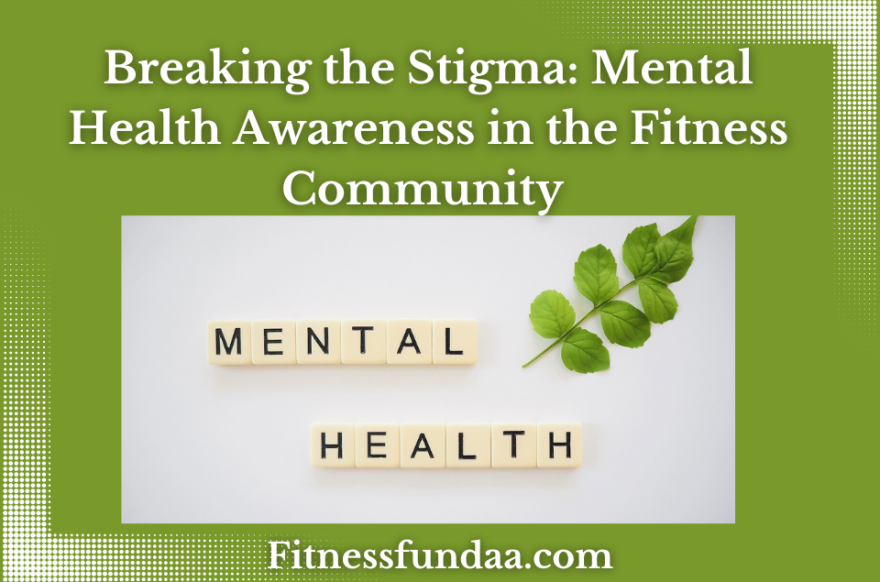Introduction to the Fitness Community:
Earlier, traditionally fitness community mainly emphasized on physical health and only considered fitness with the aspects of physical health such as strength, endurance, aesthetic ideals, and physical appearance of the body. People used to follow the fitness community to achieve a certain body type appearance or a level of fitness set by society as an ideal and masculine often neglecting mental wellbeing.
However, in recent times, we’ve witnessed a shift in mindset within the fitness community regarding the same, as they’ve started recognizing the fitness of mental health as one of the key ingredients of fitness. This shift has led to several new exercises and actions for the well-being of mental health, emotional stability, and its importance for holistic development.
The Historical Disconnect:
Historically, the fitness community has been synonymous with physical prowess and aesthetic ideals, creating a narrative that marginalized the significance of mental health. Mental well-being was frequently overlooked, and in some cases, stigmatized within the fitness community. The focus on achieving a certain body image or fitness level often perpetuated a culture that dismissed the mental and emotional challenges individuals might face in their fitness journeys. This historical disconnect has contributed to the need for a more comprehensive and inclusive approach to health within the fitness community.
Challenging Stereotypes:
Addressing the stereotype that individuals in the fitness community are immune to mental health issues is crucial for dismantling stigmas. This perception can create unrealistic expectations and hinder open discussions about mental health challenges within the community. By challenging this stereotype, the fitness community aims to foster an environment where individuals feel comfortable acknowledging and addressing their mental health concerns, ultimately contributing to a more supportive and understanding culture.
Promoting Holistic Health:
Recognizing the need for a holistic approach to health, the fitness community is increasingly acknowledging that physical and mental well-being are interconnected. Stressing over the importance of mental health within the Fitness Community is one of the most wonderful evolutions of the Fitness community. They’ve recognized mental health as one of the significant parts of overall fitness along with physical fitness. With time they are also taking certain steps to promote mental well-being.
Open Conversations and Personal Stories:
To break down stigma, influential figures within the fitness community are openly sharing their personal stories of mental health struggles. These stories serve as powerful tools in normalizing conversations around mental health, creating a sense of solidarity among community members. By openly discussing challenges such as anxiety or depression, these figures inspire others to share their experiences and seek support, fostering a more compassionate and understanding community.
Integrating Mental Health Practices:
The integration of mental health practices into fitness routines is a noteworthy trend within the community. Mindfulness, meditation, and stress-reducing techniques are being incorporated alongside physical exercises, highlighting the recognition that mental and physical health are intertwined. This approach encourages individuals to cultivate a more balanced and mindful approach to their fitness journey, addressing both the external and internal aspects of well-being.
Community Support Networks:
Fitness communities, both online and offline, are evolving into support networks that extend beyond physical training. Social media platforms, in particular, are becoming instrumental in creating safe spaces for individuals to openly discuss their mental health journeys. These communities offer a platform for sharing experiences, seeking advice, and providing empathy, ultimately contributing to a more supportive and understanding environment within the fitness community.
Educational Initiatives:
Recognizing the importance of education in breaking the stigma surrounding mental health, fitness professionals are taking the initiative to increase their knowledge. By educating themselves and others about mental health literacy, these individuals empower the community to recognize the signs and symptoms of mental health issues. This knowledge equips both trainers and enthusiasts to create an environment that prioritizes mental well-being alongside physical fitness.
The Symbiotic Relationship:
Emphasizing the symbiotic relationship between mental and physical health is crucial for fostering a comprehensive understanding of overall well-being. Recognizing that mental health plays a significant role in physical performance, recovery, and motivation encourages individuals to prioritize both aspects of their health. By nurturing this symbiotic relationship, the fitness community aims to create a more sustainable and fulfilling approach to health and fitness.
Looking Towards the Future:
The fitness community is experiencing an evolving narrative marked by a growing awareness of mental health. As the community continues to embrace a more holistic approach, it is paving the way for a future where individuals can thrive both physically and mentally. This shift signifies a positive transformation in the culture of the fitness community, fostering inclusivity and support for individuals at all stages of their health and fitness journey.
In conclusion, the fitness community’s journey from a singular focus on physical health to recognizing and embracing mental well-being marks a transformative shift. The historical disconnect, challenging of stereotypes, and integration of mental health practices underscores a commitment to holistic health. Open conversations and personal stories have fostered a supportive environment, while community support networks and educational initiatives emphasize inclusivity.
Looking towards the future, the evolving narrative within the fitness community promises a more balanced and compassionate approach, reinforcing the idea that mental health awareness is integral for sustained well-being. As barriers continue to break down, the fitness community stands poised to champion a future where individuals thrive both physically and mentally, fostering an environment of inclusivity, support, and holistic growth.
FAQs Answered
What is the importance of mental health in the fitness community?
A1: Mental health is crucial in the fitness community as it contributes to overall well-being. Recognizing and addressing mental health challenges enhances the sustainability of fitness goals and fosters a more holistic approach to health.
How has the perception of mental health in the fitness community evolved?
A2: Historically, mental health was often overlooked or stigmatized in the fitness community. However, there has been a positive shift, with an increasing recognition of the interconnectedness of mental and physical health.
What steps is the fitness community taking to challenge stereotypes around mental health?
A3: Influential figures within the fitness community are openly sharing personal stories, challenging the stereotype that individuals in the community are immune to mental health issues. This transparency aims to foster a more supportive and understanding environment.
How are mental health practices integrated into fitness routines?
A4: Mindfulness, meditation, and stress-reducing techniques are being incorporated alongside physical exercises, emphasizing the intertwined nature of mental and physical health within the fitness community.
How can fitness communities provide support for mental health?
A5: Fitness communities, both online and offline, are evolving into support networks. Social media platforms play a crucial role in creating safe spaces for individuals to openly discuss their mental health journeys, share experiences, and seek advice.
Why is education important in breaking the stigma surrounding mental health in the fitness community?
A6: Education equips fitness professionals and enthusiasts to recognize signs and symptoms of mental health issues, fostering a more informed and empathetic environment that prioritizes mental well-being alongside physical fitness.

